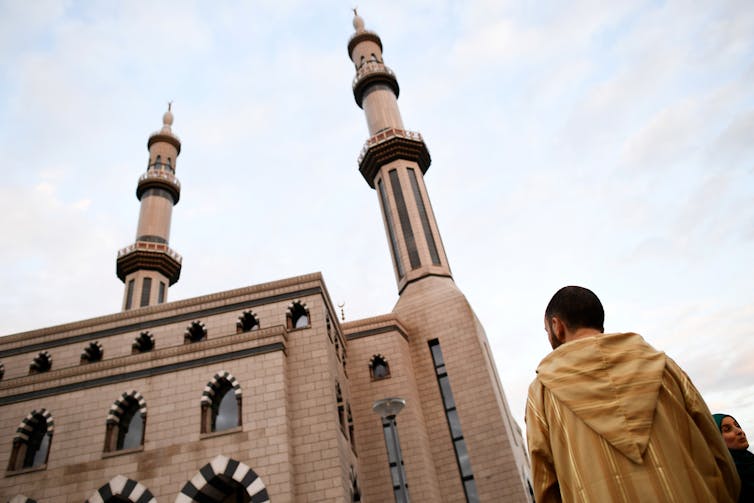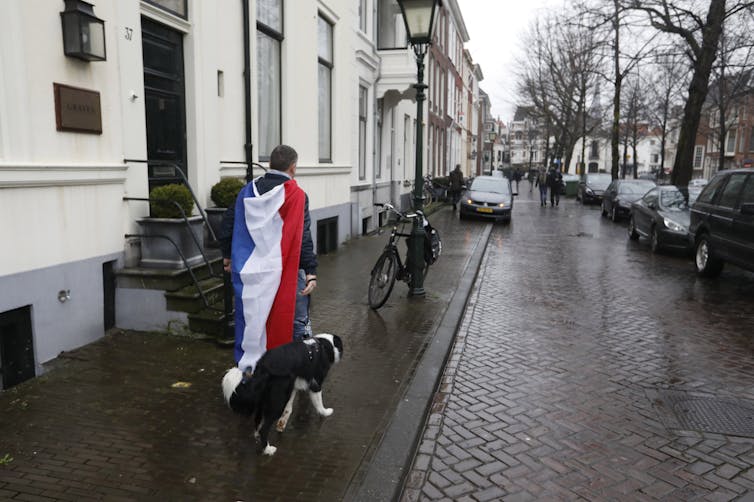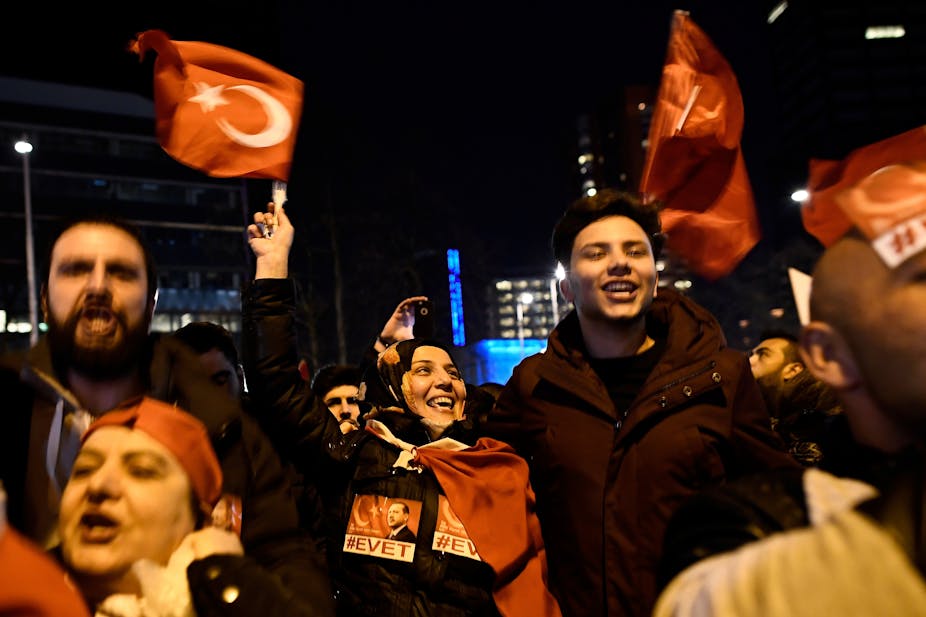The recent dispute between Turkish President Recip Tayepp Erdoğan and Dutch Prime Minister Mark Rutte, concerning Rutte’s refusal to allow Turkish ministers to campaign abroad, has only made life worse for Turks in the Netherlands.
People from a Turkish background in the Netherlands are being forced to take a side in an unpalatable diplomatic dispute in which they have nothing to win and everything to lose. Erdoğan uses them to strengthen his position ahead of a referendum to increase his own powers, and Dutch politicians use them to show voters how tough they are on immigrants refusing to integrate.
The person who benefits, of course, is Geert Wilders: the most famous man in Dutch politics right now.
Wilders has had an enormous influence on the Dutch political debate. His harsh anti-immigrant and anti-Islam rhetoric has completely transformed the Dutch integration debate. Because of Wilders, all mainstream parties have shifted to the right on immigration, Islam and integration.
This means that Dutch voters with an immigrant background, especially Muslims, are increasingly less represented by secular progressive parties, such as the Social Democrats and the Greens, which have traditionally received the most support from immigrant voters.
An open system for minority representation
Almost 20% of the Dutch population is from a first-generation or second-generation immigrant background; around 12%, or two million people, have a “non-Western” background. This group is the main target of Wilders and his Freedom Party.
The Dutch political system of proportionality generally favours the representation of minorities in terms of gender, ethnicity and social background. Elections in the Netherlands use a party list system with pure proportionality, very low thresholds, and the ability to cast preferential votes.
Party lists compete in elections. The order of candidates is decided upon by each party, though voters can select a listed candidate who will independently earn a seat upon getting enough votes. Parties only need about 60,000 votes (in a country of almost 17 million) to win one of 150 seats in the Dutch parliament.
As a result of this open political system, the percentage of politicians with an immigrant background in the Dutch parliament is among the highest in Europe.

The birth of DENK
As mainstream parties moved further to the right in order to defend themselves against Wilders, these politicians and their constituencies have become increasingly frustrated.
Two politicians of Turkish descent, Tunahan Kuzu and Selçuk Öztürk, who have strong ties to the conservative religious part of the Turkish-Dutch community, left the Social Democratic Party after intense internal fights about the extent to which Turkish religious organisations are an obstacle for integration and should be monitored and perhaps even forbidden. Kuzu and Öztürk started their own party, DENK, meaning “think” in Dutch and “equality” in Turkish.
Our research shows support for secular progressive parties among immigrant communities has decreased rapidly, and their trust and interest in Dutch politics has further decreased, affecting participation rates significantly.
Studies of young people from an immigrant background illustrate that an ever-increasing proportion of this group does not identify with Dutch society or politics any more, feels frustrated and stigmatised and believes that their interests are not represented by the mainstream political parties.
DENK is projected to win two seats in parliament. Considering that the conservative Turkish-Dutch community is relatively large, well-organised and politically active, this does not seem unreasonable.
But whether this will signal a process of emancipation of voters with an immigrant background, and whether DENK will be able to represent their interest successfully, remains an open question.
Although the main message of the DENK party programme is “connection”, their campaign strategy so far is to aggressively attack political rivals (especially if these rivals have an immigrant background themselves), along with the media and Wilders’s supporters.
In the short term, this tactic may fulfil their constituents’ need to voice anger and frustration. But in the long term it will further fuel polarisation and possibly segregation, two things that are certainly not in the interest of this group.
The future of Dutch integration
Voters with an immigrant background both need to believe that it still matters to fight for something and to receive some commitment from and connection to their country of settlement, our studies illustrate.

Current political debates tend to focus whether immigrants are assimilating to Dutch culture. This approach portrays a connection with migrants’ origin country as a problem, leaving no room for dual identification. It will only lead to further polarisation and segregation rather than create a political discourse that allows everyone to participate.
Who will take the first step to build bridges between the Netherlands’ different groups and constituencies? The longer we wait, the more difficult it will get.

